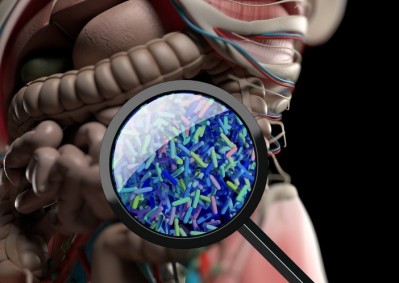Study: Vaginal 'seeding' confers microbial benefits to C-section babies

A technique called 'vaginal seeding' is the focus of a recent report that explores the swabbing of C-section babies with gauze that has been seeded with the mother's vaginal fluids.
"We thought it was important to study this because this is about the health of future generations of kids," said senior study author Maria Gloria Dominguez-Bello, a professor of microbiome and health at Rutgers University in New Jersey.
According to the World Health Organization, C-section is needed in about 15% of births to avoid risking the life of the mother or child. However, in many countries such as in Brazil, the Dominican Republic, Iran and China, C-sections are performed in more than 70% of urban births. Here in the US, about 31% of births are via C-section, according to the Centers for Disease Control.
The study
The research examined 177 babies from the United States, Chile, Bolivia and Spain, with 98 born vaginally and 79 by C-section. Of the 79 C-section deliveries, 30 of the babies were swabbed with maternal vaginal gauze after birth.
Findings
Lab analysis suggested that the microbiota of the babies who were seeded at birth was similar to that of those born vaginally.
"Our results support the hypothesis that acquiring maternal vaginal microbes normalizes microbiome development in the babies,” said Dominguez-Bello.
The researchers also found that the mother’s vaginal microbes on the day of birth were similar to other areas of their bodies, including the gut, mouth and skin. This finding suggests the fluids help colonize bacteria across their babies' bodies.
"What we show is that we can normalize at least partially the faces, the skin and the mouth microbiome of those babies during the whole entire first year," Dominguez-Bello said. "What we still don't know is the health implications. Are these babies being protected against increased risk of diseases? We don't know that yet."
Dominguez-Bello explained that when newborns are perturbed in early life, either because they are born by C-section or because they must be administered with antibiotics, the immune system can become inflamed down the road.
"It exacerbates inflammation and inflammation underlies very, very many diseases, including asthma, allergies and inflammatory conditions of the colon, celiac diseases," she explained. Dominguez-Bello.
The future of vaginal seeding
As researchers look into this technique, vaginal seeding has not become common practice. Its future is unclear, as groups like the American College of Obstetricians and Gynecologists and the American Academy of Pediatrics have acknowledge it's important, but caution it belongs in a research setting as scientists learn more about it.
According to the authors, this was the first large observational study to show that restoring a C-section baby's natural exposure to maternal vaginal microbes at birth normalizes the microbiome development during their first year of life. The researchers said the next step is conducting randomized clinical trials to determine if the microbiota normalization translates into disease protection.
Source: Med
June 17, 2021DOI doi.org/10.1016/j.medj.2021.05.003
“Naturalization of the microbiota developmental trajectory of Cesarean-born neonates after vaginal seeding”
S. Song et al.
















